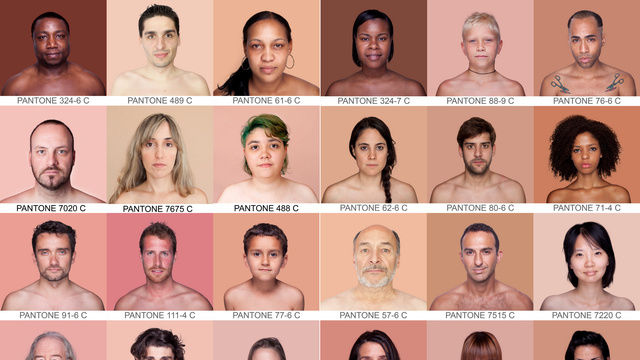Suza: We are the same beneath our skins
Columnist Walter Suza urges others to see why skin color matters, but also to realize that beneath the skin, we are all the same.
May 29, 2020
Editor’s Note: This is the fifth of a collective series conducted by Walter Suza.
If you have been following the news, this has probably been a rough week.
More than 100,000 people have died from COVID-19. In addition, millions are out of work, businesses have collapsed and the whole nation is trying to figure out how to deal with this new way of life.
This has been a very rough week.
For the Black community, it has not just been about the disproportionate impact of the pandemic. It has also been about dealing with the merciless killing of George Floyd.
The unspeakable injustice must be brought to light. However, there must be peace in seeking justice for the killing of Floyd. We owe him that peace. We owe his family that peace. Vandalism and looting do not help the cause.
Peace starts with us. Do not tear gas people who are seeking justice for the killing of their son while you refrain from addressing why others were allowed to storm into state capitols brandishing military-grade weapons.
My son and daughter saw the video of Floyd’s killing on social media. And I have been trying to find ways to help them process the inexplicable cruelty. Therefore, I did not talk with my son about his music or my daughter about her plan to return to college this fall.
I only asked my kids how they were doing. I offered to be there if they needed to talk about the tragedy.
I also emphasized to my kids that, although race has been primarily about skin color, at the genetic level, all humans share 99.9 percent of our genetic blueprint — DNA.
The “creator” intended for all humans to be equal.
As I was talking with my children, I received a text message from a friend asking how they might support me during this time. I thanked my friend and asked them to share the opinion piece I wrote in the Iowa State Daily with as many people as possible.
The science behind Black and white as a color is about absorption or reflection of light. We see an object as white when it reflects almost all light and Black when it absorbs most of the light.
In other words, all people are shades of black and white.
If this is the case, why are George Floyd, Breonna Taylor and Ahmaud Arbery dead because they were a darker shade than their killers?
To their families and friends, all three were humans first.
But skin color matters. It contributes to how Black people are treated.
When I moved to the United States in 2000, I encountered questions about skin color in college application forms. Questions such as, “Are you black or African American” or “Are you white” made me wonder why they needed to know this on a college application.
I also heard on a regular basis words such as blackmail, black sheep, black heart, black market, black book, black eye and so on. This made me wonder about the use of “black” in situations that had a more negative context.
Living in the United States also came with the reality of my being labeled the “Black guy” and experiencing the N-word. Today, this reality makes me worry about my children experiencing stigma and discrimination because of the color of their skin.
Nonetheless, I chose this country and took the Oath of Allegiance to the United States and declared “I will support and defend the Constitution and laws of the United States against all enemies, foreign and domestic.”
Racism is — and has always been — one of those enemies.
In his book “White Like Me,” Tim Wise says, “As the dominant group in the United States, whites too often have the luxury of remaining behind the veil of ignorance for years, while people of color begin noticing the different ways in which they are viewed and treated early on.”
I get frustrated with stereotyping of black people as lazy, fried-chicken-loving, violent, welfare, crack addicts.
My heart sinks thinking about this reality. My daughter ponders questions like, “Dad, I wonder how it might feel to be white and walk on the streets with no worry about my skin color?” This makes me wish I could wrap my children in skin that would offer them more acceptance in the world.
I do not believe all white people are racist.
However, what is gravely disheartening to me is the inability to recognize we did not choose our mothers’ womb, neither did we have a choice over the color of our skin.
In his “I have a dream speech,” Dr. Martin Luther King Jr. said, “I have a dream that my four little children will one day live in a nation where they will not be judged by the color of their skin, but by the content of their character.”
I hope the same for my kids. I hope the same for all children.
My mother was the child of my black grandfather and my grandmother, who had white ancestry. I am connected biologically and spiritually to every human — black and white.
The skin I wear is a gift that connects me to my biological parents. The skin I wear reminds my soul of a place I once called home – where a warm ocean and the sound of my mother’s heartbeat comforted and protected me.
You are capable of remembering this too; beneath the skin, we are all the same.
Walter Suza, adjunct associate professor in the department of agronomy.







